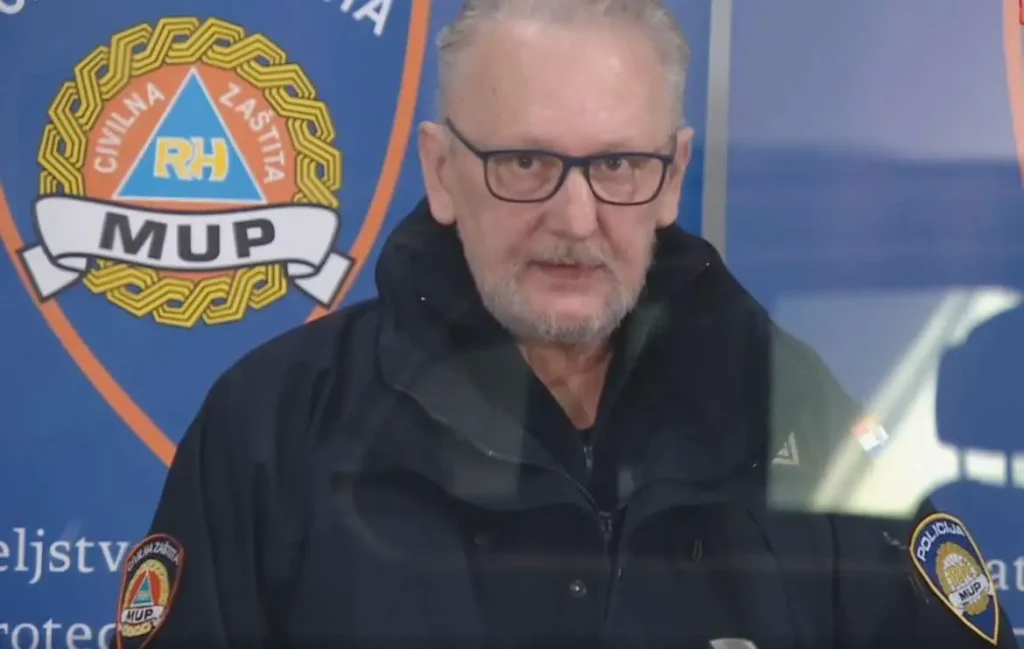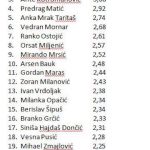Speaking to the press, he said “there are other legal remedies” and that “what and if something will be done” would be decided by Croatia’s representative before the ECHR.
Asked which stand Croatia would take if the ruling became final, Božinović said it was a question for the future.
Stressing that every loss of life was tragic, especially a child’s, he said Croatia was in a situation, through no fault of its own, in which many groups of people wanted to come to Europe.
For them to come, the EU should want to receive them, just as in the 2015 and 2016 migrant waves, but “European states are no longer willing to receive so many migrants from other countries, as that is a security, economic, social and political problem for them.”
Croatia is in a situation in which it must prevent illegal entry or become a hotspot, Božinović added.
“We, and the EU, took the position that it’s necessary to prevent illegal entry into Croatia and the EU and that those who believe that, under international law, they have the option to exercise asylum rights should apply for it. This means coming before institutions, in the specific case to a border crossing.”
If “those people” came to an official border crossings, someone would certainly receive them, he added.
Migration issue should be solved systematically
“Receiving and talking with those people, that’s international law. Instead, we are faced with illegal crossings by people who don’t carry or don’t have identity documents. Why? Because if they apply for international aid and protection in Croatia, and if they leave Croatia and move on, they can at any moment, and most often should be, returned to Croatia, but Croatia is not their goal.”
Božinović said “those people avoid a procedure which would be both clear and transparent. They want to go further than Croatia and to succeed, they must avoid Croatian border controls, and we are constantly having this problem.”
He added that the migration issue should be solved systematically. “On the one hand, Croatia should prevent illegal entry into its territory, and on the other, prevent… migration to other states.”
“Some people don’t even wait for their asylum application to be processed in Croatia but use smugglers to continue on to Europe. We are a state on the EU’s external border. We are one of the smaller EU member states, yet we have the longest external land border in the EU,” Božinović said.
Asked who would be held accountable for the death of Madine Hosseini, who was hit by a train on the Croatian-Serbian border, he said every action taken in Croatia had been in line with the law. “We’ll know more once (our lawyers) we read the whole ruling,” he added, stressing that Croatian police act “in a humane and humanitarian way.”
Božinović went on to say that during his term over 400 smugglers of illegal migrants had been arrested, adding that Croatian police deal with it round the clock.
He said the police independently conducted 22 investigations into officers suspected of misconduct, and that the police reacted and penalised whenever there was proof.
Božinović said the police director sent instructions every week on how to treat vulnerable groups. “We know how many times Croatian police officers have rescued migrants from rivers, carried pregnant women to hospital. In situations when you have about 400 to 500 people who want to enter Croatia every day and the Croatian police, under the law, should stop them by acting in line with the law, we cannot and are not ruling out the possibility of incidents.”
Everything in migrant girl’s death will be investigated
Božinović said Madine Hosseini’s death would be thoroughly investigated, as would a case of border police beating migrants.
He said some questions from the press implied “that someone would order that or want something like that to happen. Everyone in the whole system is doing their best in the conditions we are faced with for the law to be respected and for the police to do their obligation under the law, to prevent illegal entry.”
Božinović said such cases were not pleasant and that the police had managed to reduce migrant pressure on borders by 40%.
“Some other routes through Europe have opened up, because Croatia is being increasingly avoided and because it’s clear that Croatia protects its borders,” he said, adding that the officers suspected of beating migrants have been fired and that disciplinary and other action has been taken against them.
Earlier today the Centre for Peace Studies and the Are You Syrious? NGO called for the resignations of Božinović, the police director and the border police commissioner over the ECHR ruling, which found that Croatia was responsible for European Convention on Human Rights violations in Madine Hosseini’s death.










